- Home
- Tamara Leigh
Baron of Godsmere Page 2
Baron of Godsmere Read online
Page 2
Ignoring the danger in which he placed himself, Bayard bit, “Honorable? ’Tis my enemy you ask me to wed.”
Edward spread his hands on the chess table between them. “Ask? ’Tis not a request, Boursier.”
Then if Bayard refused, there would be forfeiture to pay—the barony passed to him by his father ripped away as surely as the barony of Kilbourne had been torn from Denis Foucault years ago. Of course, it would be the same for Bayard’s enemies should they reject the king’s solution to the warring between the three families.
“Methinks the Verduns and De Arells will like it no better,” Edward fed into Bayard’s head, “but they shall do as commanded.”
Bayard did not doubt it. To retain lands awarded to their fathers twenty-five years past when the three men had united against their traitorous baron and the king, the latter having fathered this Edward, they would yield.
Bayard dragged patience up from his depths as Father Crispin would counsel. “Six weeks,” he said in a barely level voice. “Grant me that, Sire, and I shall end this warring.” Somehow.
Edward scowled. “Six weeks when twenty-five years could not resolve your petty differences?”
Bayard nearly protested the pettiness of those differences, for there was nothing trivial about pillaging villages, burning crops, and slaughtering cattle. However, pettiness did play a role, for jealousy and bitterness were at the root of the offenses. Ulric de Arell, denied his desire to become baron of all, had been dealt another blow when Castle Adderstone was awarded to Archard Boursier. Thus, he had struck at Boursier, and Boursier had struck back. When Verdun would not side with one or the other, his lands had been attacked, and he had attacked back—a three-pronged vicious circle they had passed to their sons.
“Nay,” Edward said. “We will not tolerate further raiding and plundering. The marriages will be made.”
Bayard tightened his hold on the chess piece he had captured before Edward’s announcement of his plans to ally the families. Feeling the imprint in his palm, he opened his fingers and looked down. Though it was but a pawn, the ivory piece had been destined for greatness in the form of an exchange that would have returned Edward’s queen to the board. However, as Bayard was not one to willfully lose, even to a king, he had taken the piece. But still Edward would have his pawn—and its name was Bayard Boursier.
The king settled back in his chair and surveyed the lavish garden into which Bayard had been admitted an hour past. A smile hitching up his mustache, he said, “Though it cannot be said our father held your father in high regard, Boursier, that is all the more reason I look fondly upon your family.”
It was putting it kindly to say the feckless Edward II had not thought well of the Boursiers—or the De Arells and Verduns. After all, they had turned against Foucault who had forfeited his life along with the barony of Kilbourne when he had taken up arms against his liege, the earl. Fortunately, as with most things to which Edward II had aspired, the king had been largely unsuccessful in retaliating against the three families, including his attempt to have Foucault’s son, Simon, claim his father’s title. However, that particular failure was a result of the young man’s death during a skirmish in service to his French lord.
And now Edward II was also dead. Forced to abdicate to his estranged fourteen-year-old son nearly seven years past, he had been murdered shortly thereafter—if the tale was to be believed. And it was.
“Thus,” the third Edward continued, “we have decided to grant you first choice of wife, which will determine the other alliances.”
The honor made Bayard want to spit. Five years ago, he had committed the mistake of wedding one of his enemy—and it had cost him an eye. Clenching his fingers to keep from reaching to the patch, he silently cursed the woman to whom he had been granted an annulment of marriage.
“What think you?” Edward prompted. “The widow, Elianor of Emberly, or the half-noble, Thomasin of Blackwood?”
One choice was no better than the other. The niece of the wife who had cuckolded him? Or the niece of the man who had been his wife’s lover? Struggling to control his emotions, Bayard set the pawn among the other pieces he had captured. “Your move, Sire.”
Edward’s lids narrowed, but he returned his gaze to the board. As he considered his pieces, the herald who had earlier announced Bayard’s arrival reappeared.
“Your Majesty, Sir Francis Cartier requests an audience.”
Bayard knew the name, though never had he met the mercenary who held royal favor for aiding in the demise of Roger Mortimer, the divisive lover of this Edward’s mother.
“Cartier!” The king beckoned to his visitor.
Bayard looked around at the older man who, despite an unimpressive height, was of good build. A moment later, he was grateful he had heard tale of that one’s heavily scarred countenance. The lower half of Cartier’s face down to the skin visible above the neck of his tunic was broadly cratered and thickly ridged. According to rumor, the flesh had been ravaged by fire when he sought to free commoners locked in stables set ablaze by brigands.
Bayard shifted his gaze to the upper half of the man’s face that was smooth but for the grooves that two score and a dozen or more years had cut into it. And found the knight’s dark eyes upon him. And so they remained until Sir Francis halted before the king and bowed, causing the tail of the gray hair bound at his nape to shift over one shoulder.
Edward swept a hand to the bench beside him, the farthest end of which was draped with a rosebush. “Join us.”
As the knight lowered himself, the king said, “Baron Boursier, you and Sir Francis are acquainted?”
“We are not, Sire.”
“Ah, now ’tis remedied.” Edward turned his regard upon the other man. “Once more you are returned to us. How long this time?”
“A sennight, unless Your Majesty requires more. As ever, I am yours to command.”
“And I am ever grateful, Sir Francis.”
Mouth pursing amid his cruel disfigurement, the knight jutted his chin at the chessboard. “I have interrupted your match.”
“More than a match. Baron Boursier and I have come to an agreement under which his family shall retain their lands.”
Inwardly, Bayard seethed.
Outwardly, Sir Francis frowned.
“Did I not discuss the matter with you, Sir Francis?” Edward asked.
The man’s brow smoothed. “The Boursiers, the De Arells, and the…” He raised a hand that had also fallen victim to fire, jabbed the air with a finger. “…Verduns.” Mouth curving with what seemed an attempt at a smile, he reached to the side, cupped a hand around a rose, and stroked its flaccid petals. “What is your determination, Your Majesty?”
“Peace by way of marriage.”
The petals spilled from the knight’s hand and fluttered to the ground. Frowning over them, he said, “You are beneficent, Your Majesty. Had I vassals and did my coffers suffer from petty disagreements, I would make a quick end to it by declaring their lands forfeit.”
Until that moment, Bayard had felt only a stirring of dislike for the man.
Sir Francis looked to him. “You do not like that, Boursier. But then, neither will you like marriage to your enemy.” He raised his eyebrows. “Of course, from what I hear tell, your second wife will be no more amenable to bearing your name than the first.”
Bayard clenched his jaws. Though he had long borne the renown of one who had beat his wife and been made a cuckold, such reminders made his blood run hot.
Sir Francis sighed. “Methinks I would forfeit ere marrying one I loathed for the privilege of holding little more than dirt.”
Now Bayard clenched his hands, longing to feel the smack of flesh and bone.
As if searching his memory, Sir Francis raised his gaze, causing sunlight to reveal gold in brown eyes so dark they were almost black. “I have heard tale of a household knight who weighted his purse with dirt in hopes it would one day turn into land.” He chuckled, shook his head.
/> The hair on Bayard’s neck rose. His father had carried soil given him by Baron Foucault as promise that one day he would be granted lands of his own—a promise twice made lies.
“But such is the foolishness of grasping men,” Sir Francis concluded.
Edward cleared his throat, reminding the two men in whose presence they sat. “A true knight errant you are, Sir Francis.”
Knight errant. From what Bayard knew of the man, it was a pretty way of identifying him as that class of soldier who sold his services to the highest bidder regardless of ethics. A mercenary.
“Your leave is granted, Boursier,” the king said.
Dismissed. Of no more import than the abandoned chess game. Though Bayard knew Father Crispin would disapprove, he said again, “Your move, Sire.”
Annoyance flickered across the king’s face, but he advanced his piece as expected. Several moves later, the color of anger seeped into his face.
“Checkmate, Your Majesty.” Bayard stood, bowed, and pivoted. He had taken barely two strides when a clatter evidenced the chess pieces had been swept from the board.
“Boursier!”
He turned. “Sire?”
Having gained his feet, the king pressed his palms to the chess table. “Two months I give you to choose between the Verdun and De Arell women. Wed by the last day of autumn or forfeit all.”
Insides boiling like water over a roaring fire, Bayard inclined his head.
“Checkmate, Boursier,” Edward loosed one last arrow, “and no game, this.”
CHAPTER TWO
Barony of Godsmere, Northern England
Autumn’s end, 1333
To stop the wedding, she would have to kill the groom. Or so Agatha sought to convince her.
Peering up from beneath the ragged edge of the thick shawl she had drawn over her head, Elianor of Emberly considered the man who approached astride a destrier blacker than the dregs of her ink pot. Though Bayard Boursier was fairly complected, he seemed no less dark than his mount. From his perspiration dampened hair that flipped up at the nape to his unshaven jaw to the merciless heart that beat beneath an ebony tunic, he was kin to the night.
El ground her teeth over the king’s plan to ally the bitterest of enemies. Had Edward learned nothing from the mistake of five years past when her aunt had been made to wed into the Boursiers—one that had turned the families’ hatred more foul?
“A pox on you, Edward,” she muttered as she glared at the king’s agent of misery, a man whose appearance hardly improved the nearer he drew, one made worse by the black patch covering his left eye.
A fearsome groom he would make for Thomasin de Arell whom, it was told, he had chosen to take to wife and would do so within the next six days to avoid forfeiture of his lands. But providing all went as planned, The Boursier, as he was better known—as if the whole of him could not be contained within his given name—would not have the De Arell woman. Nor would he have El, though until three days past, she had feared he would choose her. Thus, she had laid plans to avoid a sacrifice possibly greater than that offered up with her first marriage.
Despite the shawl’s heat that was too much for a relatively warm day, she shivered as memories of her husband crawled over the barriers erected against them.
She shook her head. Murdoch Farrow, to whom she had been wed five years ago at the age of sixteen, was dead. And, God forgive her, she had nearly danced to be free of him. Just as Thomasin de Arell would rejoice in being spared marriage to Bayard Boursier.
As he drew closer, she lowered her gaze. But one peasant among the many who thronged the market in the town outside Castle Adderstone’s walls, she feigned interest in the foodstuffs offered by a merchant—an old man whose bones and joints were prominent beneath a thin layer of skin. A moment later, his hands shot up and, in concert with his voice, expressed annoyance over his dealings with a stout woman whose heavily loaded cart evidenced she was from the castle kitchens.
El slid her gaze past unplucked chickens suspended by their legs to the riders who skirted the gathering, and hazarded another look at The Boursier. She groaned. Having only seen him from a distance when he had brought his men against her uncle’s, he was larger than thought. Beneath a broad jaw, his neck sloped to expansive shoulders, chest tapered to sword-girded hips, bulky thighs gripped his destrier, hosed calves stretched long to stirrups.
Curling her toes in her slippers, she assured herself she could do this. Though he had chosen Thomasin de Arell, still her family—the Verduns—must ally with the loathsome Boursiers, meaning it fell to her uncle to wed this man’s sister. However, if El’s plan succeeded, the Boursiers would be expelled from these lands, as might the De Arells.
Pricked by guilt that the De Arells might feel Boursier’s wrath for that which would soon be worked upon the latter, she reminded herself of the raid upon Tyne five months past. A dozen villagers’ homes had been burned with half their crops, and all evidence suggested the De Arells were responsible for the atrocity visited upon the Verduns’ people.
The flick of Boursier’s reins drew El’s gaze to tanned hands that appeared twice the size of her own. Familiar with the cruelty of which a man’s hands were capable, she told herself this one would not get near enough to hurt her as her departed husband had done. Still, her heart pounded with emotions she had struggled to suppress since her wedding night when she had realized Murdoch found her tears pleasing.
Boursier was less than twenty feet distant when the sun came out from behind the clouds, and she was surprised to see his looks lighten. She would have said his hair was deepest brown, but sunlight revealed it to be darkly auburn. And the one visible eye was pale, though she could not tell if the gaze he swept over the town folk was blue, green, or gray. Regardless, his soul was black.
Doubt prying at her purpose, she silently beseeched, Lord, can I do it? Not that she believed God would condone her plan, but neither was she certain he would condemn her.
She shifted her regard to the diagonal scar above and below Boursier’s eyepatch. Though deserved, he surely loathed the Verduns and De Arells for an affliction without end.
When he was nearly upon the stall behind which El stood and his gaze settled on her, she forced herself not to react in any way that would attract more attention—all the while praying the shawl provided enough shadow to obscure her face. Not that he had ever seen Elianor of Emberly.
Though questioning disturbed his brow, he urged his destrier past.
She eased the air from her lungs, swung around, and hastened to the hooded one who awaited her near a stall piled high with cloth.
Despite broad shoulders that fifty years of life had begun to bend, the woman who looked down upon El had something of a regal bearing. It was also present in high cheekbones and the dark, sharply arched eyebrows Agatha raised to ask what need not be voiced.
El glanced beyond her at the great fortress that flew the red and gold colors of the House of Boursier, and nodded. In the guise of a kitchen wench, she was ready to steal into Castle Adderstone. Or so she prayed—or should have.
Six days she must hold him. Then, for his refusal to wed his enemy, his lands would be forfeited. Unless she failed.
I shall not, she promised herself.
Even now Boursier was likely feeling the effects of the draught she had slipped into his drink a half hour past. That had been no easy task, one nearly rendered impossible when the cook had approached her. Blessedly, as she tensed for flight, someone had called him to the storeroom.
In his absence, she had stirred Agatha’s preparation into the cup that was to be delivered to Boursier’s bedchamber, the lord of Castle Adderstone’s habit of wine before bed having remained unchanged since Agatha had endured a year in his household.
“’Tis just ahead,” Agatha said low, raising the torch to burn away the cobwebs blocking their passage.
El peered around the older woman at stone walls laid not by man, but by God. Here was the place to which Boursier was destin
ed. Carved out of the bowels of the earth outside his own castle, the shaft with its branching passages had been dug by Verduns and De Arells twenty years past when, for several months, they had joined against the Boursiers. El’s own grandfather had assisted with the undermining that had brought down a portion of the castle’s outer wall—a short-lived victory.
Months following the thwarted siege, she had visited Castle Kelling and bounded onto her grandfather’s lap. Only one arm had come around her. Bayard Boursier’s father had taken the other.
“This is it, my lady,” Agatha said as she turned left off the passageway onto another, at the end of which lay an iron-banded door with a grate at eye level.
El considered Boursier’s prison. “It will hold him?”
Agatha fit one of several keys into the lock and pushed the door inward. “‘Twould hold three of him.”
El accepted the torch offered her, stepped into the chill cell, and grimaced. The stone walls were moist with rainfall that seeped through the ground above. To the right, a rat scuttled into shadow. Ahead, three sets of chains and manacles hung from the walls. Were Boursier of a mind to be grateful, he would be glad he had only to endure this place for the six days remaining of the two months given him to wed his enemy.
As El turned out of the cell, she wondered again how Agatha had learned of the passage formed from the mine of that long ago siege, the entrance to which was a cavern in the wood. More, how had she obtained the keys? Unfortunately, the woman’s secrets were her own, but El would not complain. While wed to Murdoch, she had benefitted from those secrets in the form of sleeping powders.
Meeting the gaze of the one in the doorway, she said, “Aye, it will hold him.”
Agatha drew from her shoulder the pack that would sustain Boursier and tossed it against the far wall. “You are ready, my lady?”

 FEARLESS: Book Two: Age of Conquest
FEARLESS: Book Two: Age of Conquest BOUNDLESS: A Medieval Romance (AGE OF CONQUEST Book 6)
BOUNDLESS: A Medieval Romance (AGE OF CONQUEST Book 6)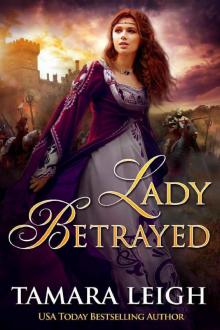 Lady Betrayed
Lady Betrayed Merciless
Merciless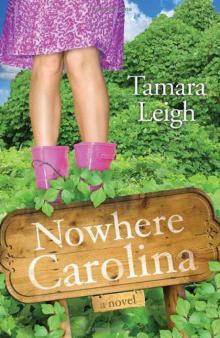 Nowhere, Carolina
Nowhere, Carolina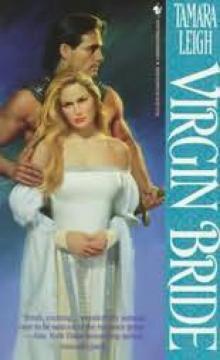 Virgin Bride
Virgin Bride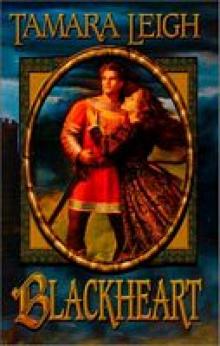 Blackheart
Blackheart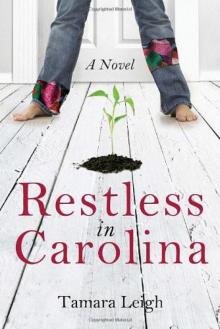 Restless in Carolina
Restless in Carolina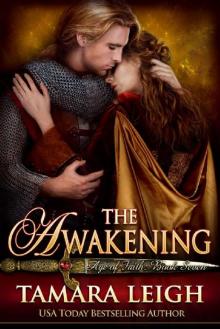 THE AWAKENING_A Medieval Romance
THE AWAKENING_A Medieval Romance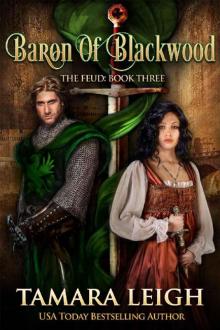 Baron of Blackwood
Baron of Blackwood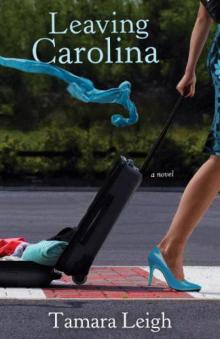 Leaving Carolina
Leaving Carolina HEARTLESS: A Medieval Romance (Age of Conquest Book 4)
HEARTLESS: A Medieval Romance (Age of Conquest Book 4)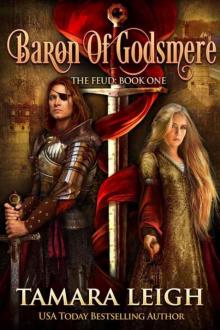 Baron of Godsmere
Baron of Godsmere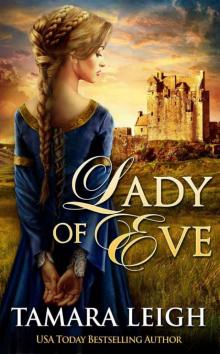 Lady Of Eve
Lady Of Eve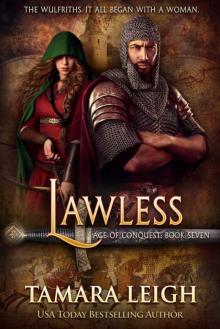 LAWLESS: A Medieval Romance (AGE OF CONQUEST Book 7)
LAWLESS: A Medieval Romance (AGE OF CONQUEST Book 7)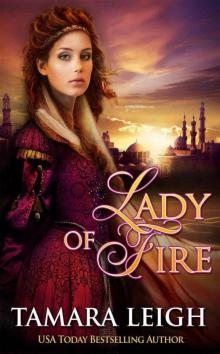 Lady Of Fire AKA Pagan Bride
Lady Of Fire AKA Pagan Bride The Yielding (Age of Faith)
The Yielding (Age of Faith) The Redeeming: Book Three (Age of Faith)
The Redeeming: Book Three (Age of Faith)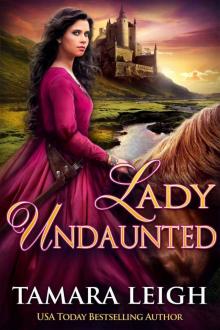 LADY UNDAUNTED: A Medieval Romance
LADY UNDAUNTED: A Medieval Romance THE RAVELING: A Medieval Romance (Age of Faith Book 8)
THE RAVELING: A Medieval Romance (Age of Faith Book 8)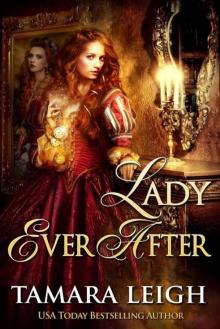 LADY EVER AFTER: A Medieval Time Travel Romance (Beyond Time Book 2)
LADY EVER AFTER: A Medieval Time Travel Romance (Beyond Time Book 2)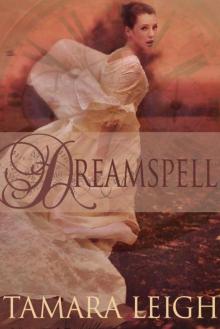 Dreamspell
Dreamspell The Unveiling (Age of Faith)
The Unveiling (Age of Faith) THE RAVELING
THE RAVELING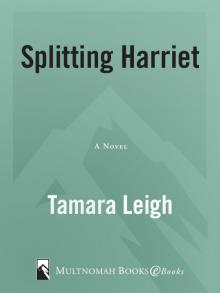 Splitting Harriet
Splitting Harriet Age of Faith 4 - The Kindling
Age of Faith 4 - The Kindling THE RAVELING_A Medieval Romance
THE RAVELING_A Medieval Romance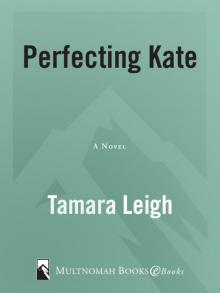 Perfecting Kate
Perfecting Kate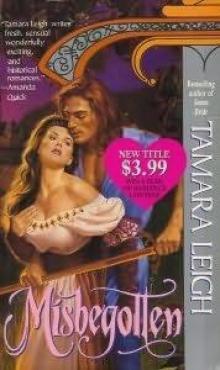 Misbegotten
Misbegotten THE VEXING: A Medieval Romance (AGE OF FAITH Book 6)
THE VEXING: A Medieval Romance (AGE OF FAITH Book 6)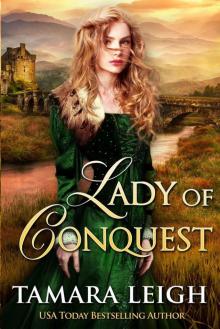 LadyOfConquest:SaxonBride
LadyOfConquest:SaxonBride